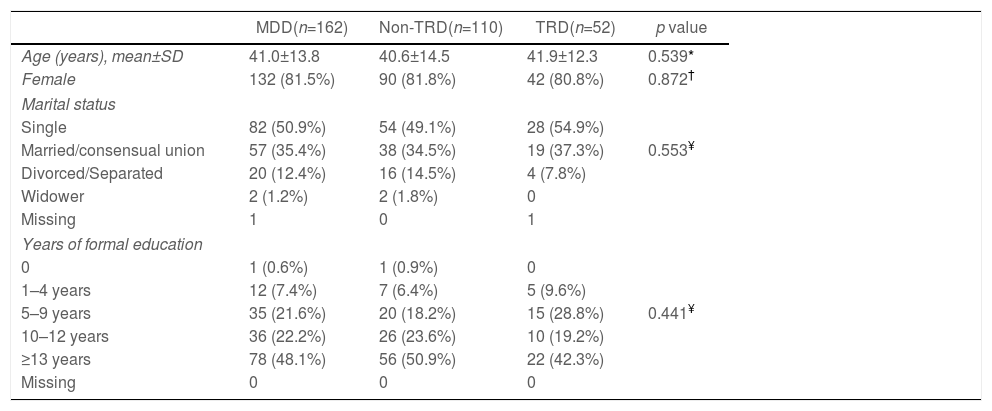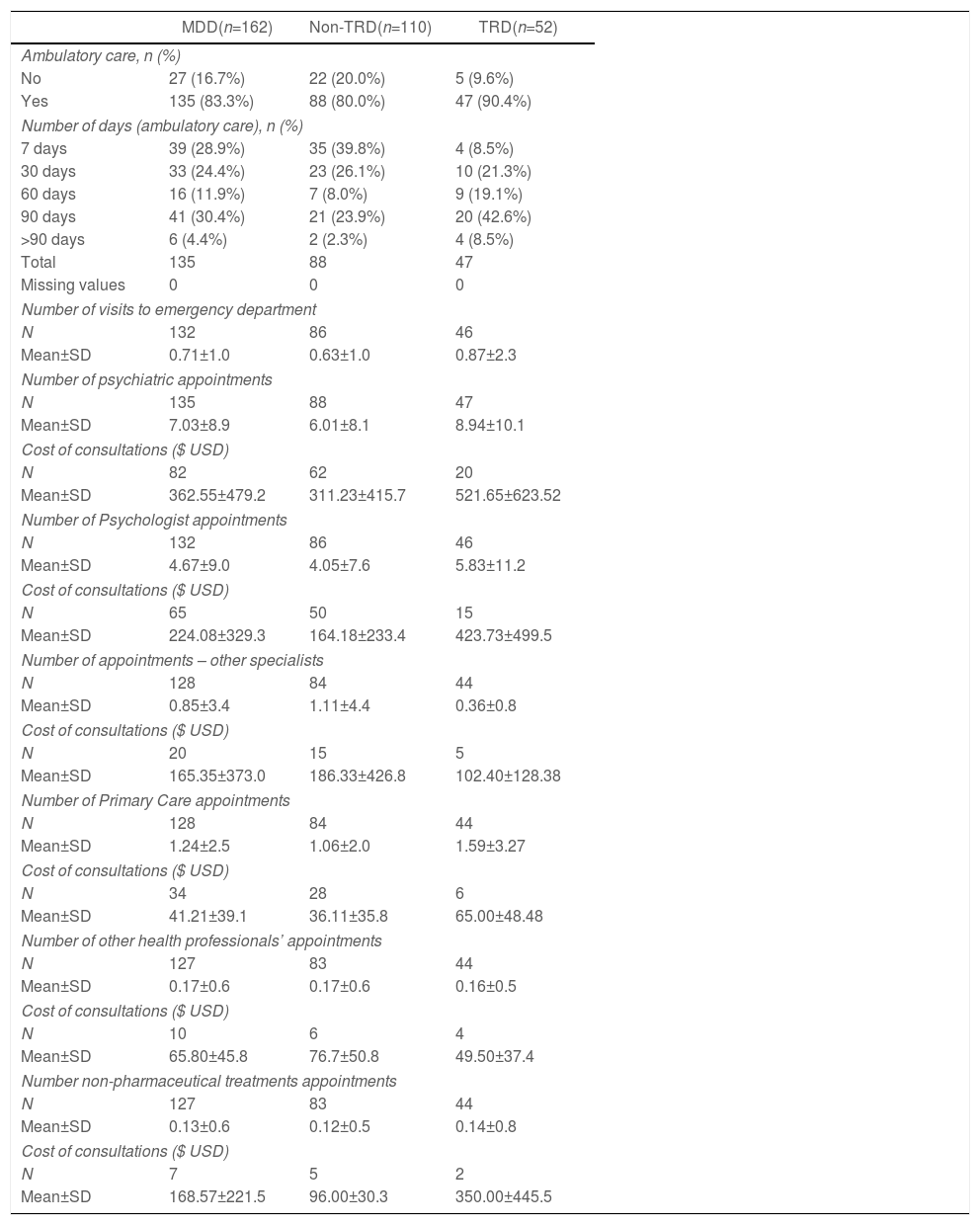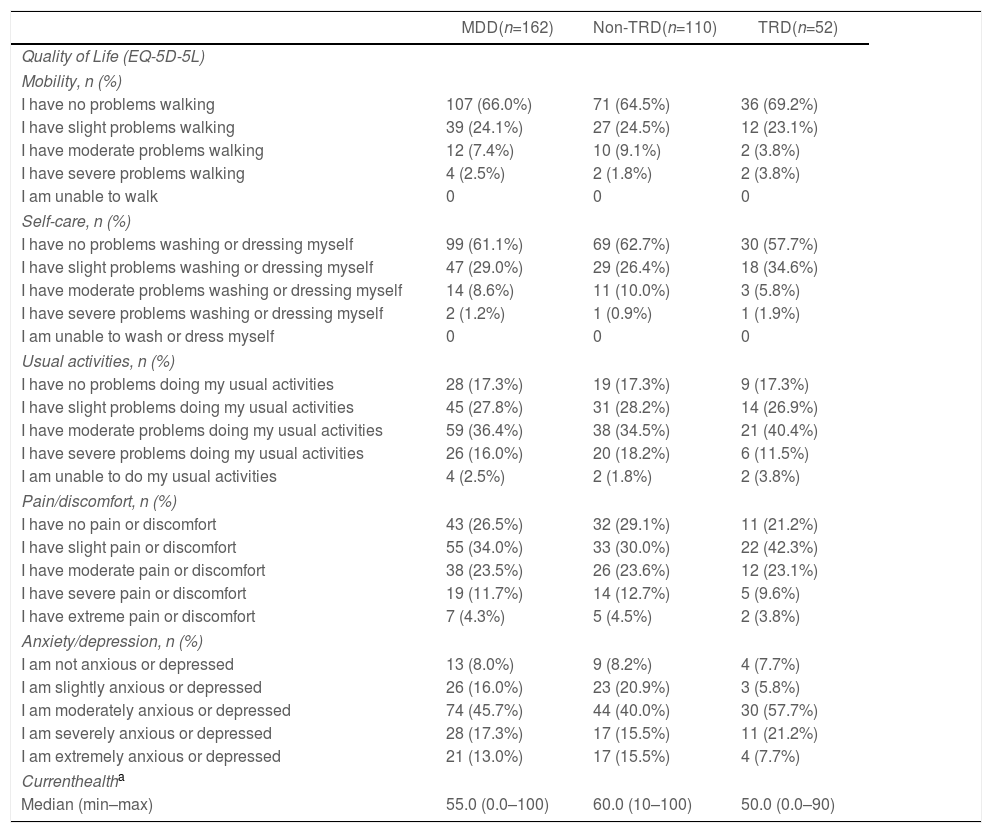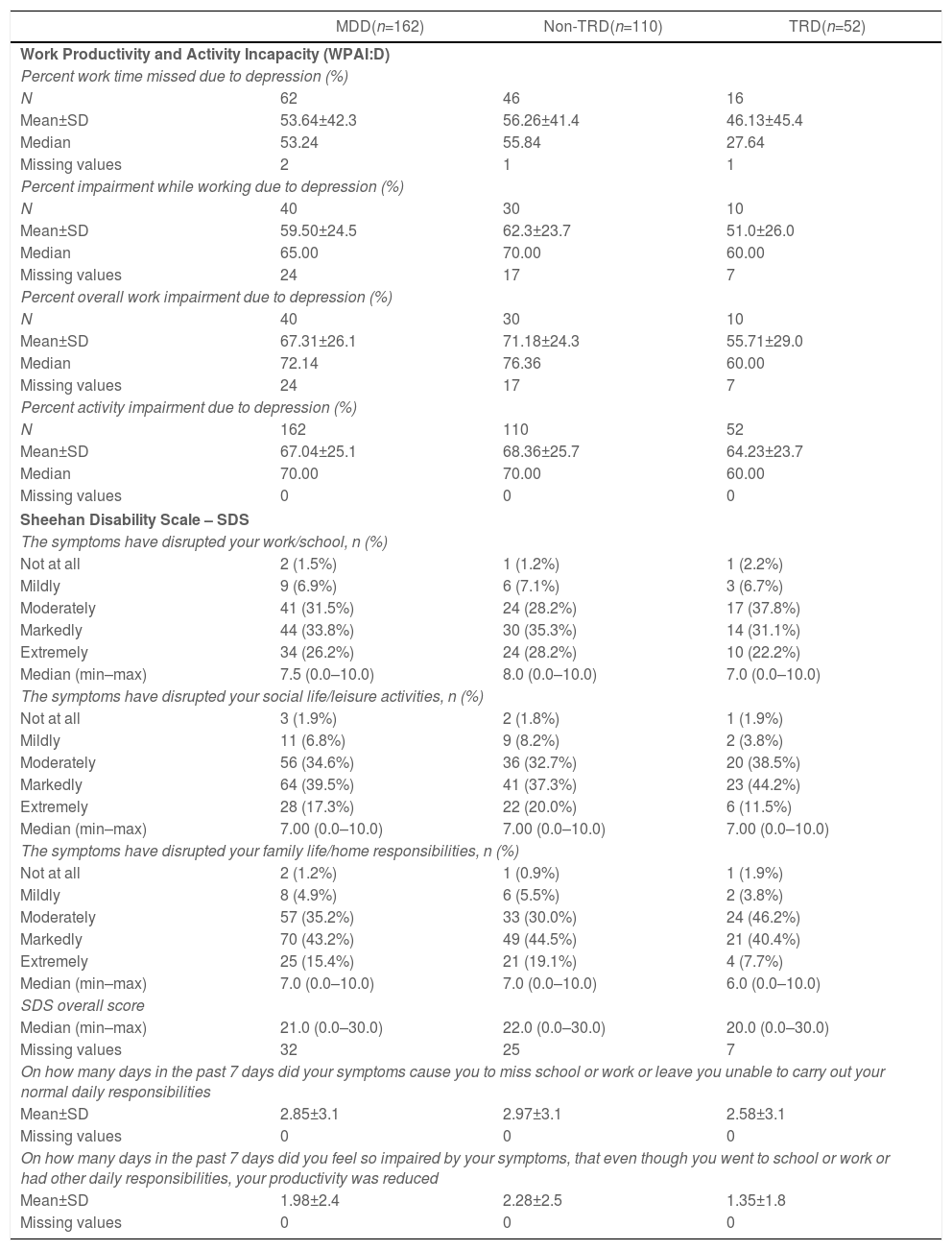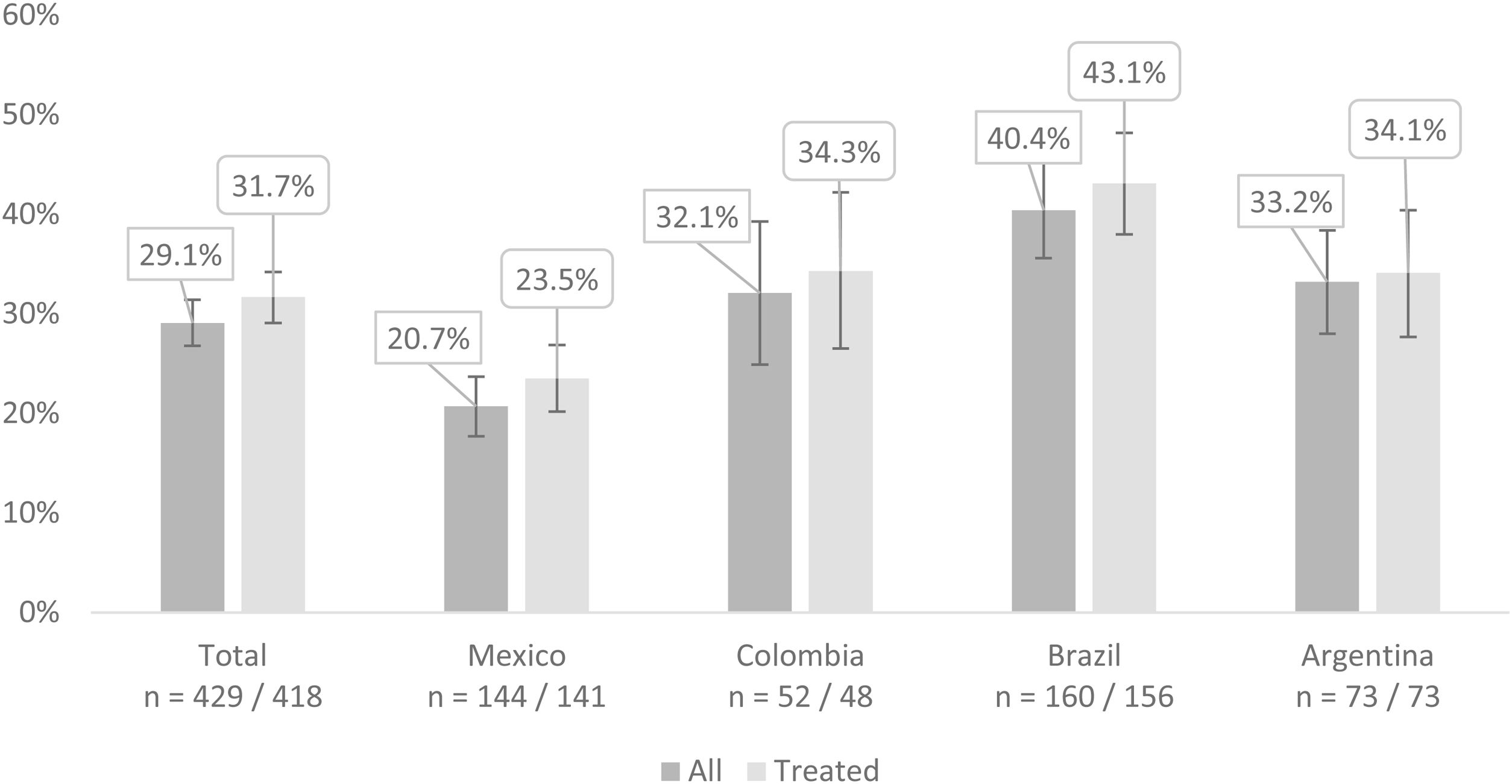To estimate the prevalence of treatment-resistant depression (TRD) in Colombia, and characterize hospitalized major depressive disorder (MDD) patients for disability, health-related quality of life (HRQoL) and work-impairment.
Materials and methodsAdult MDD patients (n=162) from 4 centers in Colombia, with a clinical diagnosis of MDD based on DSM-5 and MINI, were consecutively included. Patients with psychosis, schizophrenia, bipolar disorder, schizoaffective disorder, dementia, with severe chemical dependence or currently participating in another clinical trial were excluded. Patient reported outcomes and clinical assessment scales were used as outcomes with WPAI:D (work impairment), EQ-5D (QoL) and Sheehan Disability Scale, as well as healthcare resource utilization.
ResultsPrevalence of TRD in Colombia among patients treated at psychiatric reference sites was 32.1% [24.9%; 39.3%], higher in private institutions. Most patients were females and single. 55% reported having moderate to severe problems with usual activities at the beginning of the study. Mean percent of working time missed due to depression was around 53%, and work impairment was roughly 67%. A mean of 2.85 days in the last seven were marked by lost school/work, with higher losses in TRD patients compared to non-TRD. Overall results for HRQoL were lower in TRD patients, but disability and work impairment were higher in non-TRD.
ConclusionsThere is a high prevalence of mental disorders in Colombia, including TRD, impacting significantly HRQoL. The burden associated with them may be reduced by a most comprehensive and customized usage of therapies, including the innovations, and implementation of national mental health programs.
Estimar la prevalencia de depresión resistente al tratamiento (DRT) en Colombia, y caracterizar a los pacientes con trastorno depresivo mayor (TDM) que requieren hospitalización con respecto a discapacidad, calidad de vida (HRQoL) e incapacidad laboral.
Materiales y métodosSe incluyó una muestra consecutiva de adultos (n=162) de 4 centros en Colombia con diagnóstico de TDM basado en escalas DSM-5 y MINI. Se excluyeron casos de psicosis, esquizofrenia, trastorno bipolar, trastorno esquizoafectivo, demencia, drogodependencia grave o participantes de otro ensayo. Se utilizaron escalas de evaluación clínica y resultados informados por el paciente como WPAI:D (incapacidad laboral), EQ-5D (QoL) y escala de discapacidad de Sheehan, así como utilización de recursos médicos.
ResultadosLa prevalencia de DRT en Colombia fue del 32,1% (24,9%; 39,3%) más alta en las instituciones psiquiátricas privadas. En la muestra predominaron mujeres y solteras. El 55% de la muestra informó problemas moderados a graves con las actividades habituales al inicio. El tiempo laboral perdido fue del 53%, y la incapacidad laboral por depresión el 67%. Se perdieron 2,85 días de actividad escolar/laboral de los últimos 7 días, más en pacientes con DRT que en pacientes sin DRT. Los resultados de HRQoL fueron más bajos en pacientes con DRT, pero la discapacidad y la incapacidad laboral fueron más altas en pacientes sin DRT.
ConclusionesExiste una alta prevalencia de trastornos mentales en Colombia, incluyendo TRD, impactando significativamente en la HRQoL. La carga asociada con ellos puede reducirse mediante el uso más integral y personalizado de terapias, incluidas las innovaciones y la implementación de programas nacionales de salud mental.





